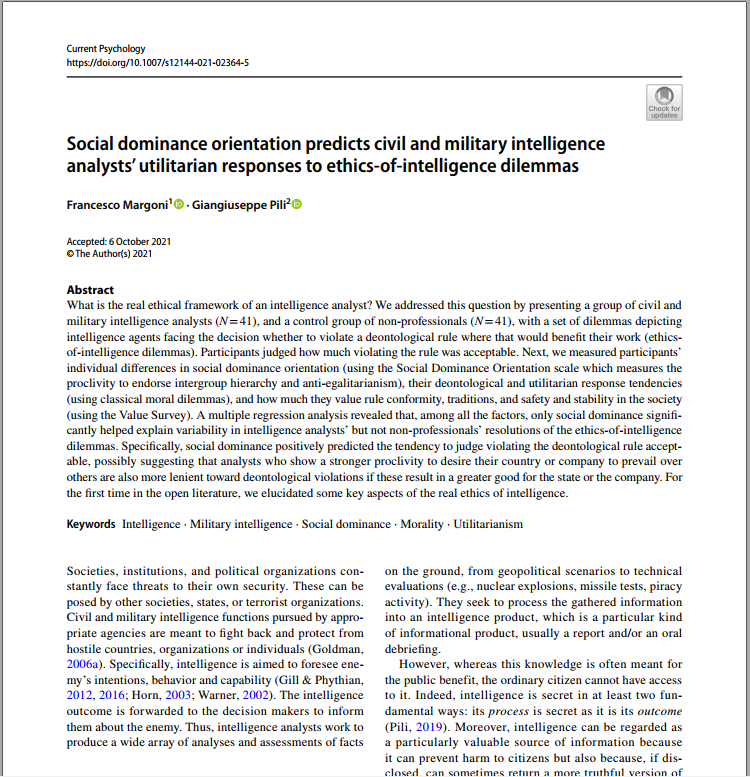Abstract
What is the real ethical framework of an intelligence analyst? We addressed this question by presenting a group of civil and military intelligence analysts (N = 41), and a control group of non-professionals (N = 41), with a set of dilemmas depicting intelligence agents facing the decision whether to violate a deontological rule where that would benefit their work (ethics-of-intelligence dilemmas). Participants judged how much violating the rule was acceptable. Next, we measured participants’ individual differences in social dominance orientation (using the Social Dominance Orientation scale which measures the proclivity to endorse intergroup hierarchy and anti-egalitarianism), their deontological and utilitarian response tendencies (using classical moral dilemmas), and how much they value rule conformity, traditions, and safety and stability in the society (using the Value Survey). A multiple regression analysis revealed that, among all the factors, only social dominance significantly helped explain variability in intelligence analysts’ but not non-professionals’ resolutions of the ethics-of-intelligence dilemmas. Specifically, social dominance positively predicted the tendency to judge violating the deontological rule acceptable, possibly suggesting that analysts who show a stronger proclivity to desire their country or company to prevail over others are also more lenient toward deontological violations if these result in a greater good for the state or the company. For the first time in the open literature, we elucidated some key aspects of the real ethics of intelligence.





Be First to Comment